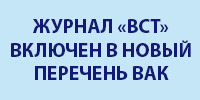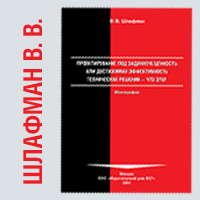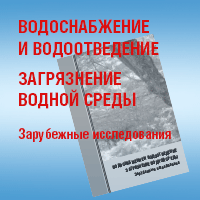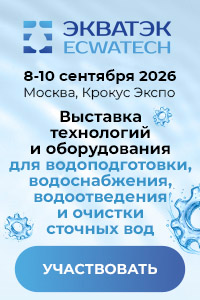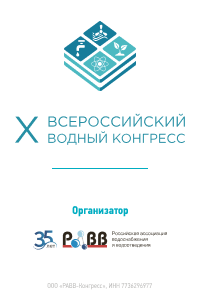№10|2013
WATER SOURCES QUALITY MONITORING
bbk 000000
UDC 504.064.4:351.777
Sanitary regulation and sanitary control – the basis of ensuring water body safety
Summary
Water safety is provided with two complementary processes: sanitary regulation and sanitary control of water bodies. The task of sanitary regulation is setting safety requirements to biological, chemical and physical indices. Sanitary representative microorganisms include representatives of obligatory microflora of human and homoiotherm organisms that allow estimating the degree of biogeneous pollution. These are Escherichia coli (collibacillus), fecal streptococcus (enterococcus), sulfite-reducing clostridia spores, Proteus, thermophilic microorganisms, coliphages (bacterial viruses) etc. Sanitary index is reflecting the presence and amount of one or another sanitary representative microorganism in a specified sample size taken from the water body under investigation. Qualitative sanitary index reflects and regulates the absence or presence of specified microorganisms in a specified sample size. Quantitative sanitary index is the concentration of specified (unknown) microorganisms in the specified sample size. Index figure reflects the degree of fecal contamination of the water body (Escherichia coli, Enterococcus faecalis, coliphages). Indicator figure reflects the efficiency of disinfection processes and technologies and points at possible presence of pathogens with different tolerance (Clostridium perfringens, coliphages). World Health Organization recommends distinguishing between two types of microbiological monitoring: for estimating water treatment efficiency; for identifying fecal pollution and presence of pathogens.
Key words
potable water , water object , sanitary and epidemiological requirements , pathogens , sanitary index
The further text is accessible on a paid subscription.
For authorisation enter the login/password.
Or subscribe
REFERENCES
- Tekhnicheskoe rukovodstvo po epidemiologicheskomu nadzoru za bolezniami, sviazannymi s vodoi [Technical guidance on water-related disease surveillance]. Geneva, World Health Organization, 2011, 154 p. (In Russian).
- Guidelines for drinking-water quality [electronic resource]: Recommendations. World Health Organization, 2006, vol. 1.
- SanPiN 2.1.2.1188-03. Plavatel’nye basseiny. Gigienicheskie trebovaniia k ustroistvu, ekspluatatsii i kachestvu vody. Kontrol’ kachestva [SanPiN 2.1.2.1188-03. Swimming pools. Hygienic requirements to the design, operation and water quality. Quality control]. (In Russian).
- SanPiN 2.1.4.1074-01. Pit’evaia voda. Gigienicheskie trebovaniia k kachestvu tsentralizovannykh sistem pit’evogo vodosnabzheniia. Kontrol’ kachestva: sanitarno-epidemiologicheskie pravila i normativy [SanPiN 2.1.4.1074-01. Drinking water. Hygienic requirements to the quality of public drinking water supply. Quality control: sanitation-and-epidemiological rules and regulations]. (In Russian).
- SanPiN 2.1.4.1116-02. Pit’evaia voda. Gigienicheskie trebovaniia k kachestvu vody, rasfasovannoi v emkosti. Kontrol’ kachestva [SanPiN 2.1.4.1116-02. Drinking water. Hygienic requirements to bottled water quality. Quality control]. (In Russian).
- SanPiN 2.1.4.1175-02. Gigienicheskie trebovaniia k kachestvu vody netsentralizovannogo vodosnabzheniia. Sanitarnaia okhrana istochnikov [SanPiN 2.1.4.1175-02. Hygienic requirements to the quality of water in noncentralized water supply. Sanitary protection of sources]. (In Russian).
- SanPiN 2.1.5.980-00. Vodootvedenie naselennykh mest, sanitarnaia okhrana vodnykh ob”ektov. Gigienicheskie trebovaniia k okhrane poverkhnostnykh vod [SanPiN 2.1.5.980-00. Community wastewater disposal, sanitary protection of water bodies. Hygienic requirements to surface water protection]. (In Russian).
- Polozhenie o gosudarstvennom sanitarno-epidemiologicheskom normirovanii [Statement on sanitation-and-epidemiological regulation]. Approved with RF Government Decree of 24 July, 2000, no. 554. (In Russian).
- Federal’nyi zakon ot 30 marta 1999 g. № 52-FZ «O sanitarno-epidemiologicheskom blagopoluchii naseleniia». Sobranie zakonodatel’stva Rossiiskoi Federatsii [Federal Law of 30 March, 1999 no. 52-FZ «On sanitation-and-epidemiological safety of population». Code of RF Laws]. Мoscow, 1999, no. 14. (In Russian).
- MUK 4.2.1018-01. Sanitarno-mikrobiologicheskii analiz pit’evoi vody [Practical Policies 4.2.1018-01. Sanitary-microbiological analysis of drinking water]. (In Russian).
- MUK 4.2.2314-08. Metody sanitarno-parazitologicheskogo analiza vody [Practical Policies 4.2.2314-08. Methods of sanitary-parasitologic water analysis]. (In Russian).
- GOST R 52426-2005 (ISO 9308-1:2000). Voda pit’evaia. Obnaruzhenie i kolichestvennyi uchet Escherichia coli i koliformnykh bakterii. Chast’ 1. Metod membrannoi fil’tratsii [GOST Р 52426-2005 (ISO 9308-1:2000). Drinking water. Detection and qualitative accounting of Escherichia coli and coliforms. Part 1. Membrane filtration method]. (In Russian).
- GOST R 54316-2011. Vody mineral’nye prirodnye pit’evye. Obshchie tekhnicheskie usloviia [GOST R 54316-2011. Mineral natural drinking waters. General specifications]. (In Russian).
- Malysheva Z. G., Ugol’kova N. V. Sanitarno-mikrobiologicheskoe issledovanie vody. Rukovodstvo po meditsinskoi mikrobiologii [Sanitary-microbiological water analysis. Guidance on medical microbiology]. Book 1. Under the editorship of A. S. Labinskaia, U. G. Volinova. Moscow, Binom Publ., 2008, pp. 825–867. (In Russian).
- GOST R 51592-2000. Voda. Obshchie trebovaniia k otboru prob [GOST R 51592-2000. Water. General requirements to sampling]. (In Russian).
- GOST R 51593-2000. Voda pit’evaia. Otbor prob. [GOST R 51593-2000. Drinking water. Sampling]. (In Russian).


